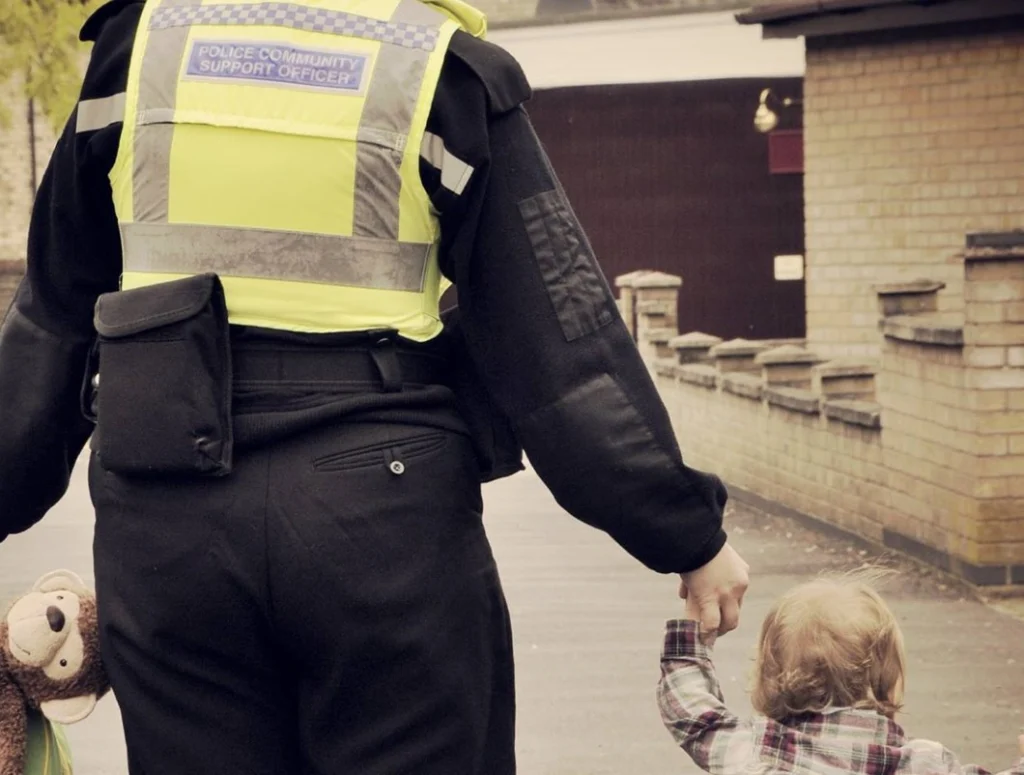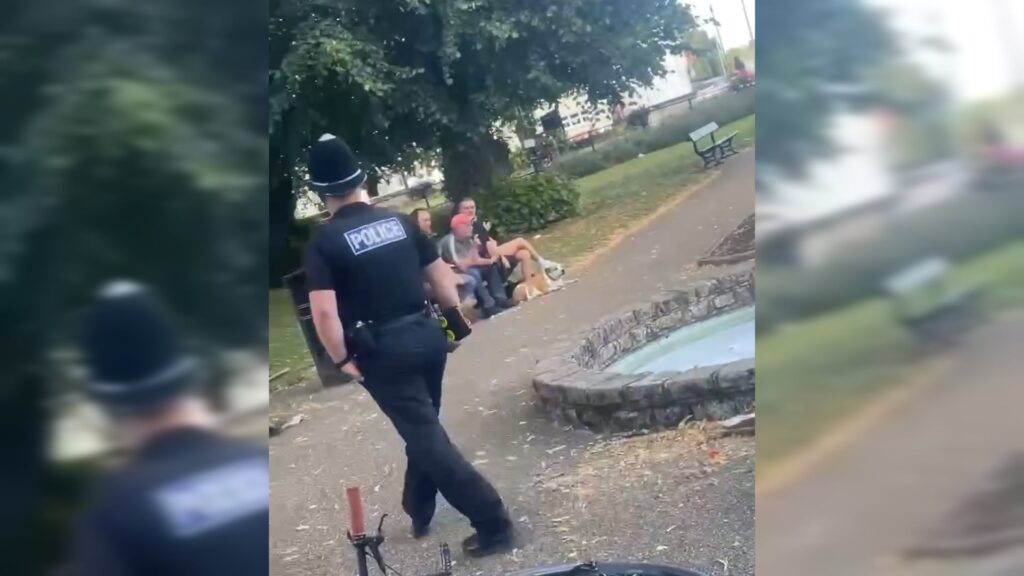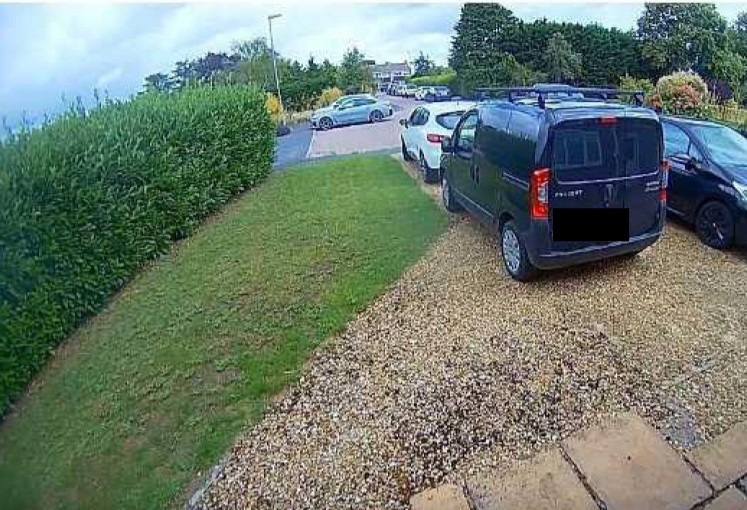This is a perfect play for Hallowe’en. Frankenstein, Mary Shelley’s ghost story, first published in 1818, is updated by writer Sean Aydon and set in Germany during the Second World War. It’s chilling from beginning to end and absolutely captured a first night audience in Cambridge, many of whom were teenagers. It’s edge of seat stuff.
As the play opens, the stage is set with a rustic hut in the middle of a forest. A weary middle-aged woman, dressed for a cold winter, hangs up her hat on a peg and settles down for the night. There is then the most alarming and insistent banging on the wooden door.
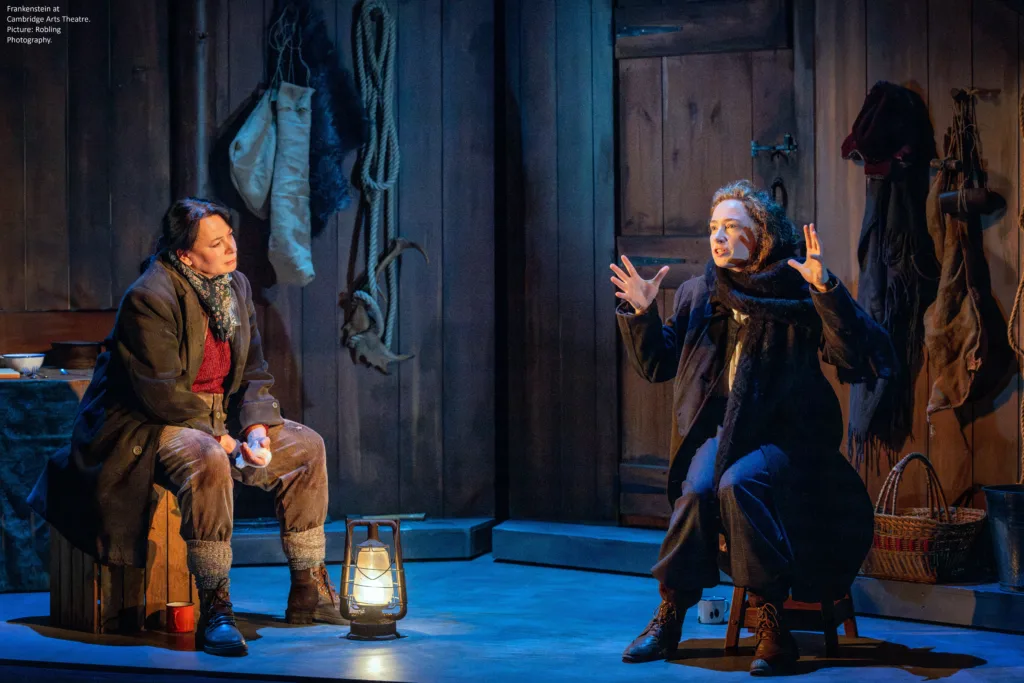
Enter a young woman, frozen to the bone, pleading to be taken in. The old woman pulls a gun on her and demands to know why she is there. No one survives in this forbidding place she says. People don’t come here for holidays. Basienka Blake as the resident of the hut and Eleanor McLoughlin as the young woman pleading for asylum are both utterly convincing. It’s a chilling start to a haunting tale.
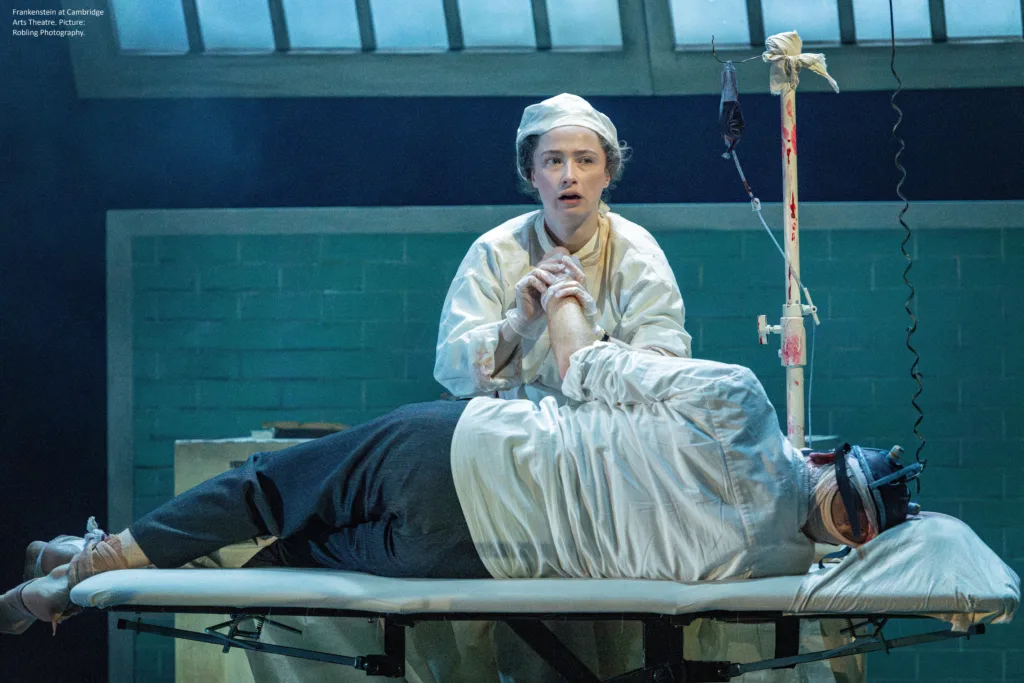
As the play unfolds, we hear both their stories. The younger woman is Dr Victoria Frankenstein. She has created a monster she says, and she must find him. He’s out there in the forest and he’s dangerous. He must be stopped. Her reluctant host demands to know the full story.
The set, designed by Nicky Bunch then opens up to reveal Dr Frankenstein’s huge laboratory with a massive sloping window and shelves of glass bottles – and a bed on which a figure lies covered by a white sheet. Frankenstein and her assistant Francine (a powerful performance from Annette Hannah) know this is the night they must bring these mis-matched body parts to life.
This will be night of a fierce storm. The power of electricity will galvanise the figure back to life. It will live only for a few minutes, Frankenstein assures Francine. But they leave the room after the experiment and when they return, he has gone.
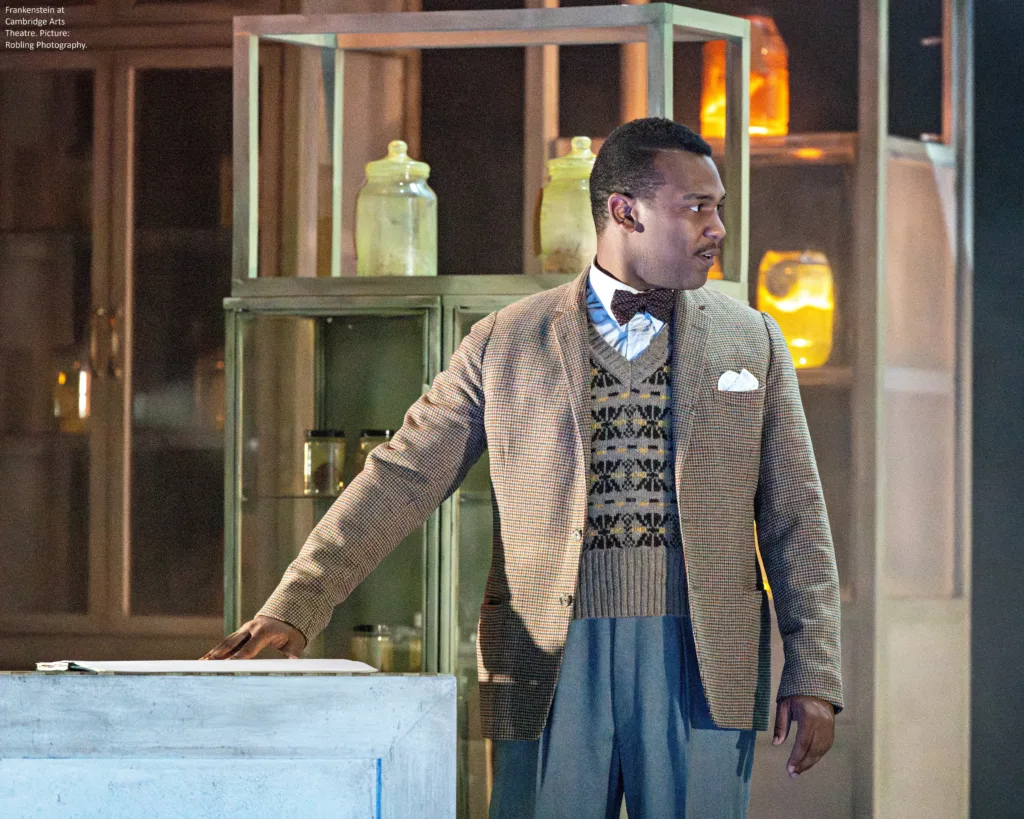
This is a melodrama, but the cast manage to keep the horror real enough for it not to descend into parody – or to be downright funny. This Dr Frankenstein was sincere in her intentions. She wants to defy death. She wants to create a person strong enough to resist it. That’s why she has made her creature with super-human strength. Unhappily, this means his limbs – and especially his hands are lethal.
Cameron Robertson is terrifyingly good as the monster. “You didn’t even give me a name” he cries in anguish. He is so repellent that people scream and quiver at him on sight. He is lonely and he demands that the remorseful Frankenstein make him a companion.
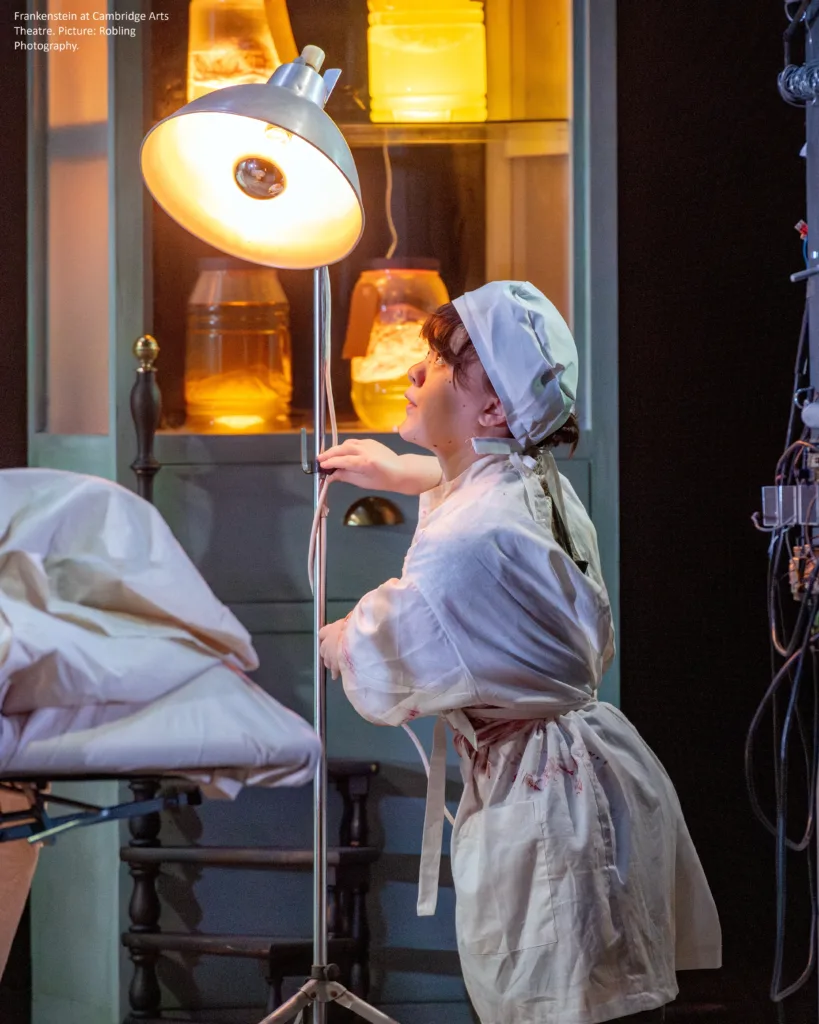
Meanwhile, we learn that the old lady, known only as Captain, is a Polish citizen fleeing from the Nazis who have killed her family. There are references to what use the Nazis might have made of regiments of creatures with monstrous powers.
As in the film Oppenheimer and the play Farm Hall, (both about the development of the atom bomb) the debate rages over just how much responsibility scientists have for how their discoveries are used.
“If a rock falls and kills someone – should we blame Sir Isaac Newton?” Asks Frankenstein.
An interesting play performed with depth and balance focusing not just on the monster but on the human failings of his maker.
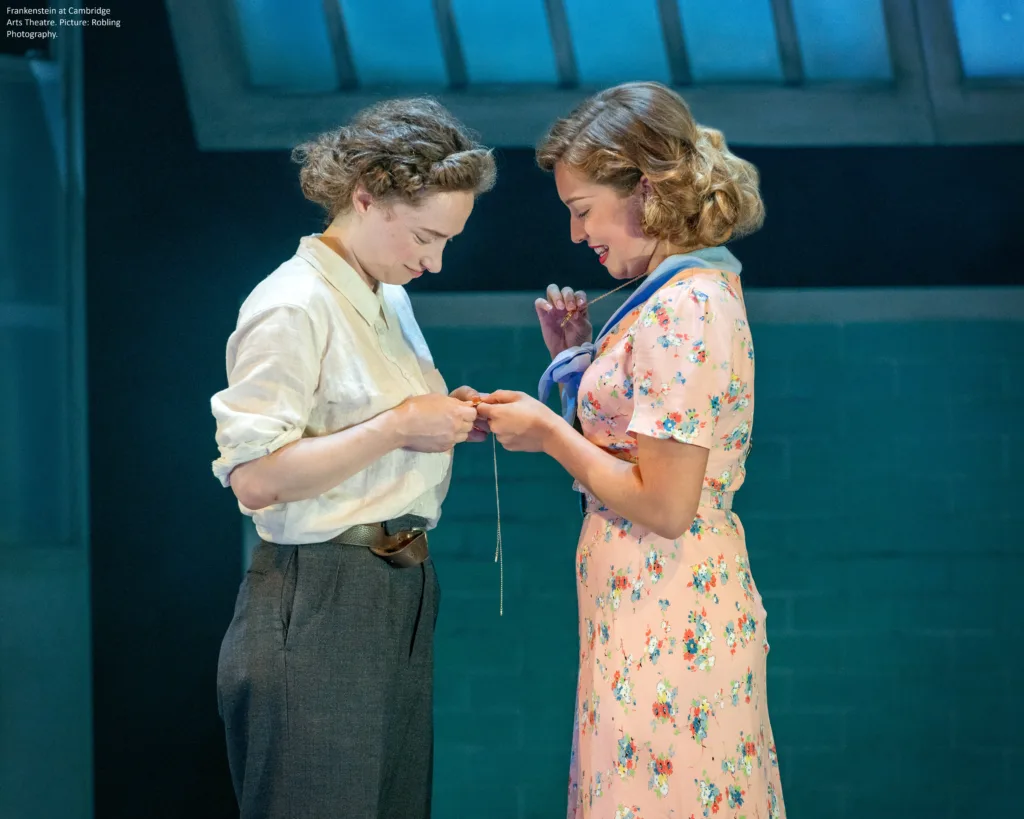
Frankenstein is at Cambridge Arts Theatre until Saturday, October 7 then touring. It reaches The Theatre Royal, Bury St Edmunds on Hallowe’en, playing there from October 31 to November 4.




